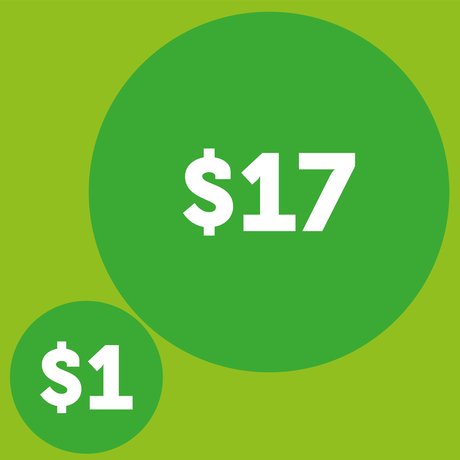Key message
Key challenges
- Enrolment in early childhood education is woefully inadequate for marginalised children in rich and poor countries alike. More than 175 million children, almost half of all pre-primary-age children globally, are not enrolled in preschool. In low-income countries, only one in five are enrolled. 1 in 3 children between 3-4 years of age is not developmentally on track.
(UNICEF, 2019) (UNICEF, 2023) - There is a stark global divide in access to early childhood education. While more than 80% of children in high-income countries are attending pre-primary education, more than 80% of children in low-income countries are denied access.
(Zubairi & Rose, 2019) - Access to early childhood education varies markedly within countries. In low-income countries, rich children are eight times more likely to attend early childhood education programmes than those who are less well off. For example in Cameroon, 69% of the richest percentile attend preschool compared to 2% of the poorest.
(UNICEF, 2019) (World Inequality Database on Education) - The cost of inaction is high. For example, if Nicaragua does not expand universal preschool, it will lose the equivalent of 4.1% of GDP in unrealised development potential.
(Richter et al., 2017) - A substantial increase in investment is needed, particularly in early education. OECD countries spend on average 0.7% of GDP on early childhood education and care. Only 2% of humanitarian aid in emergencies is dedicated to early childhood development.
(Theirworld, 2023) - Commitment to improving early childhood development remains low. In 2021, only 22% of UN member states have made pre-primary education compulsory, and only 45% provide at least one year of free pre-primary education. Only 46 countries have adopted free and compulsory pre-primary education in their laws.
(UNESCO, 2022) - A lack of pedagogical training impacts the quality of early childhood education. The global average of pre-primary teachers who have received the minimum required pedagogical training is 85%, but only 57% in low-income countries.
(UNICEF, 2024)
Make the case
- Early childhood development is one of the best investments that can be made. Each dollar invested in early childhood education can yield a return as high as US$17 for the most disadvantaged children. Improving access to quality childcare for families can help break the cycle of poverty and improve the skills and knowledge of children and adults, which increase economic growth and productivity.
(Theirworld, 2023) - More investment in early childhood education is crucial to help children reach their full potential. It is currently estimated that 250 million or 43% of children under five in low- and middle-income countries will not reach their developmental potential, which means a loss of 19.8% in adult annual income.
(Black et al., 2017) - Quality early childhood development prepares children better for future learning. Children in Uganda who did not attend pre-primary education are twice as likely to repeat first grade.
(Brunette et al., 2017) - Nurturing care interventions can mitigate the impact of poverty on brain development and early learning outcomes. A recent randomised controlled trial in Switzerland found that a biweekly home visit to the most deprived families led to a
significant improvement in children’s adaptive behaviour, developmental status, and language skills, narrowing the learning gaps associated with poverty.
(Schaub et al., 2019) - Children who attended early childhood education are more likely to be on track with learning outcomes. In low- and middle-income countries, 44% of children who attended early childhood education programmes are on track in literacy and numeracy skills compared with only 12% of children who did not attend any programmes.
(UNICEF, 2019) - Missing out on nurturing care in the early years can lead to lower cognitive, language, and psychosocial outcomes. Deprivations in early childhood can impact the functioning of the body and brain later in life, which contributes to reduced learning ability, early school dropout, negative interpersonal relationships and reduced earning capacity.
(UNICEF, 2023) - Early childhood interventions lead to significant individual benefits later in life. In Jamaica, early childhood interventions in the cognitive and socioemotional development of stunted children aged 9-24 months old led to lower crime rates, better mental health, and 25% higher earnings 20 years later, compared to children not receiving any intervention during early childhood.
(World Bank, 2018) - Early childhood development is a key opportunity to develop important 21st century skills, including cooperation, teamwork, communication, creativity, self- discipline, and motivation. Early development of these critical skills will create a virtuous cycle and help children to continue to learn and engage in later life.
(Global Business Coalition for Education, 2016) - The cost to integrate early childhood development into existing services is not high. An additional US$0.50 per person each year is all that is needed for early childhood development to be integrated into existing services.
(UNICEF, 2023) - It is important to remember the long-term horizon. In Jamaica, providing toddlers with psychosocial stimulation increased earnings by 25%, but these returns only materialised 20 years later.
(World Bank 2019)
Key infographic

Each dollar invested in early childhood education can yield a return as high as US$17 for the most disadvantaged children
Key opinion

Audrey Azoulay
Director-General of UNESCO
We know that investing in early childhood is the most effective way to reduce social inequalities, which begin even before birth. At a time when the COVID pandemic has increased inequalities, especially in education early childhood care and education is a powerful weapon to reverse the trend, it is also a very powerful tool to support gender equality – giving families childcare solutions, supporting mothers especially, so they do not have to interrupt their careers if they do not choose to.
Key talking points
- Over 175 million children globally are not enrolled in early childhood education.
- Approximately 90% of a child’s brain development takes place before the age of five.
- Early childhood education is the foundation for a child’s growth and developmental potential, alongside other crucial early years investments.
- Marginalised children in rich and poor countries are less likely to have access to quality early childhood education.
- Early childhood curriculum frameworks should cover different aspects of early learning and prepare children with essential knowledge and skills for a smooth entrance to formal education.
- Every dollar invested in early childhood education can yield a return as high as US$17 for the most disadvantaged children.
Share This Resource
Similar Themes






